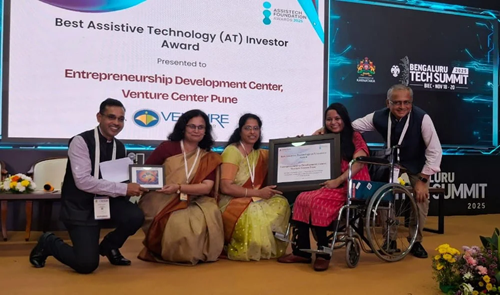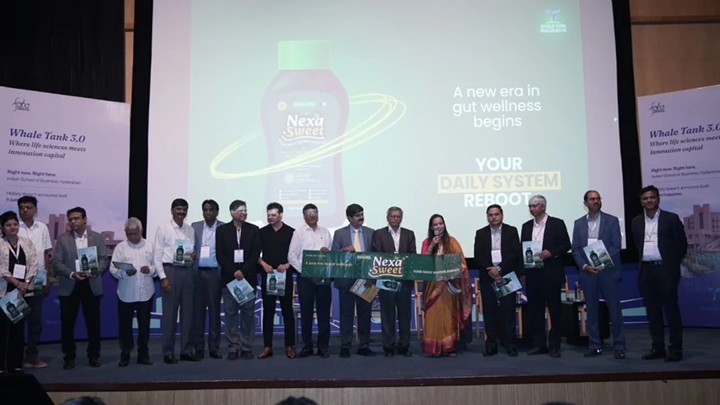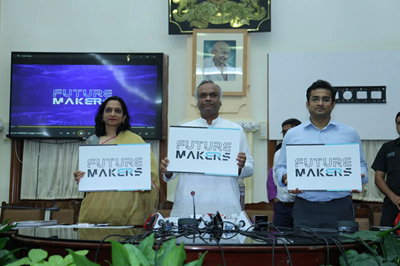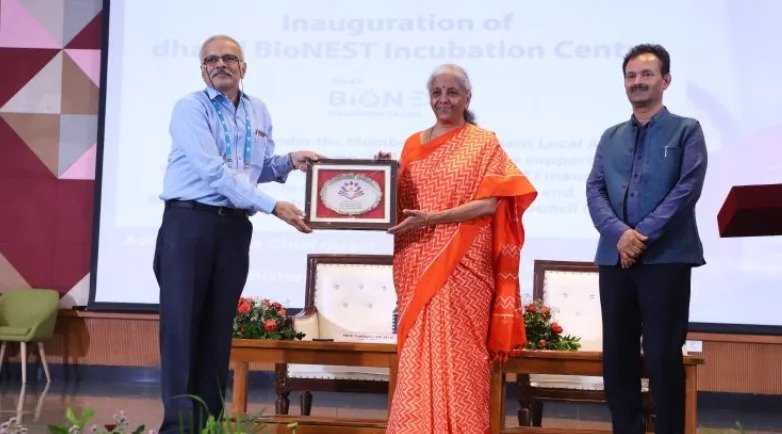Ensuring Biotech Startup Success Stories
According to the Indian BioEconomy Report 2025, the number of biotech startups has more than doubled from 4237 in 2020 to 10,075 in 2024. However, there has been a 13.1 per cent decline in 2024 with new startup registrations, as compared to the previous years. While the number of new startups kept increasing between 2020 and 2023, ranging between 26 and 30 per cent, 2024 saw only a 16-18 per cent rise in the number. Does this new trend suggest a potential stabilisation of the existing startups or a funding crunch for the new entrants? Or the growth of biotech startups in the country is simply following a numbers game. Let’s find out.

In 2024, the bioeconomy of India reached a value of $165.7 billion, reflecting strong growth across biopharma, bioindustrial production, research services, and agricultural biotechnology. The India Bioeconomy Report 2025, prepared by the Association of Biotechnology Led Enterprises (ABLE), states that in 2023, the bioeconomy registered a 10 per cent growth, while in 2024, it registered a 9.7 per cent growth.
The report also reveals that the biotech startup sector has shown a decrease in growth rate in 2024 compared to previous years between 2020 and 2023. A similar dip was witnessed back in 2019 after considerable jumps from 2016 to 2018.
On the other hand, in 2022, biotech startups saw 31 deals totalling $938.8 million, while 2023 saw a dip with only 16 deals worth $199.6 million. The year 2024 further witnessed recovery and is estimated to close at $700 million with over two dozen deals.
These fluctuations might be governed by factors such as market saturation, increased competition, emerging new technologies, or limited funding.
As a recent development to harness the biotech potential in different parts of the country, the government has announced the development of regional Biotechnology Industry Research Assistance Council (BIRAC) centres across India, as a collaboration between the Centre and States.
“The rapid rise of biotech startups over the last 10 years demonstrates India’s growing leadership in biotechnology and its potential to revolutionise the global bioeconomy. A new trend also lies in the observation that innovative startups are now growing in other areas of the country, such as Jammu, Haryana, and the Northeastern region, which were less explored before. There is a need for comprehensive mapping of states based on their biotech potential”, said Dr Jitendra Singh, Union Minister of State (Independent Charge) Ministry of Science and Technology, Government of India.
Failure of funding?
While the Department of Biotechnology (DBT) and BIRAC in India are actively supporting and promoting biotech startups through various funding opportunities, not many innovations are translating into successful products in the market every year. Budding entrepreneurs continue to face challenges in accessing capital in different stages of their venture journey, and this might be a reason for the dip in the number of new startups entering the biotech sector in 2024.
Sharing his thoughts, Dr Manish Diwan, Mission Director - Make in India & Head- Biofoundry, said, “Very little government funding has reached entrepreneurs in 2024 due to in progress implementation of the new finance system of zero balance account. This has had a direct impact on fresh entrepreneurs onboarding as grant recipients and hence affecting new startup incorporation.”
At the Startup Mahakumbh 2025 event, held between April 3 and 5 in Delhi, Union Minister for Commerce and Industry Piyush Goyal urged Indian investors to strengthen the startup ecosystem with more domestic capital. The Minister also mentioned that the Second Fund of Funds for Startups (FFS) with a corpus of Rs 10,000 crore has been approved by Prime Minister Narendra Modi. “This year, Rs 2,000 crore will be disbursed to Small Industries Development Bank of India (SIDBI) as the first installment. A significant portion of the fund will be reserved for seed funding of small startups and to support deep-tech innovation. Through this fund, we aim to foster the development of cutting-edge technologies like AI, robotics, quantum computing, machine learning, precision manufacturing and biotech”, said Goyal.
Focusing particularly on the biotech startups’ funding scenario, Padmaja Ruparel, Co-founder, Indian Angel Network (IAN), said, “While early-stage investors are willing to fund and nurture the biotech startups, the lack of growth-stage capital in India is a major hurdle. Without larger funding pools, we risk losing promising companies to overseas markets through acquisitions or relocations. Addressing this gap is critical. Another key insight from an investor's perspective is that while many entrepreneurs have strong expertise in deep science and technology, they often lack knowledge in business and finance. Understanding these aspects is essential for building long-term value. Entrepreneurs must either acquire these skills themselves or bring in co-founders, mentors, or advisors who can bridge this gap. Without a solid grasp of finance and business strategy, scaling a startup becomes significantly more challenging.”
Adding another perspective to this current scenario restricting the growth of biotech startups in the country, Dr Taslimarif Saiyed, Director, Centre for Cellular and Molecular Platforms (C-CAMP), said, “The rise in the number of startups doesn’t automatically reflect the depth of innovation. There seems to be less emphasis on sustained support and monitoring. The focus should shift towards nurturing long-term, science-driven entrepreneurship rather than just counting startup numbers. A strong innovation ecosystem depends on a steady and accessible funding pipeline. Even if 1,000 startups begin each year, around 200 may hold real potential, highlighting the importance of a broad base to support a strong top. Reintroducing dedicated early-stage funding will be essential. At the same time, as new technologies emerge, regulatory frameworks must evolve to strike a balance between innovation and safety. Policymakers have a crucial role in anticipating these changes. Equally important is investing in education and scientific literacy, not just relying on a young population, but ensuring they’re equipped with the knowledge and skills needed for the future.”
As technology is maturing faster within the startup ecosystem, many biotech and deeptech startups are exploring the use of artificial intelligence (AI) while building new solutions. But these innovations require a strong skilled workforce, financial support, and effective regulatory guidelines to see the light of the day. The deployment of new technologies alone will not ensure success and profitability for the biotech startups in the years to come.
Focusing on critical factors, experts of the biotech industry strongly recommend establishment of strategic funds that can provide patient capital, supportive manufacturing hubs and bio-foundries, strengthening mentorship programmes such as the new BioSaarthi programme launched by the government in March this year, increasing availability of risk capital for biotech ventures with particular focus on early-stage funding, and creation of specialised accelerator programmes for biotech startups that account for longer development timelines. Designed as a six-month cohort, BioSaarthi will facilitate structured mentor-mentee engagements, offering personalised guidance to emerging entrepreneurs in the biotech sector. Thereafter, we hope to see a number chart of successful biotech startups getting highlighted year after year.
Vrushti Kothari
(vrushti.kothari@mmactiv.com)
Published on : 08th May, 2025
BIO-TECH
-
Venture Center receives ATF 2025 Honour for supporting assistive technology innovations 24th November, 2025

-
Vaidam Health and Vanuatu's Ministry of Health ink MoU to strengthen cross-border healthcare access 20th November, 2025

-
Whale Tank Biocatalysts hosts Startup-Investor Meet WT 3.0 in Hyderabad 17th November, 2025

-
BTS 2025 to host India’s largest entrepreneurship platform “Future Makers Conclave” on Nov 20 06th November, 2025

-
Bessemer Venture Partners leads Rs 125 Cr Series A funding in fertility startup Pluro 04th November, 2025

-
dhaRti BioNEST Incubation Centre opens at Indian Institute of Technology (IIT) Dharwad 15th October, 2025

-
Bartronics India makes strategic investment of up to Rs 50 Cr in Huwel Life Sciences 30th September, 2025





